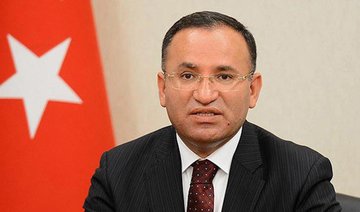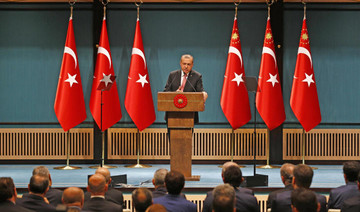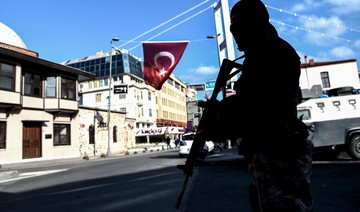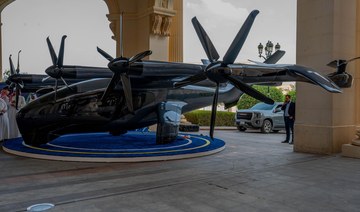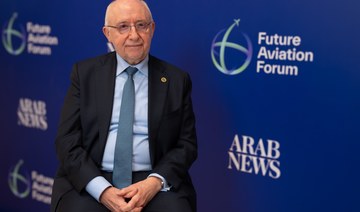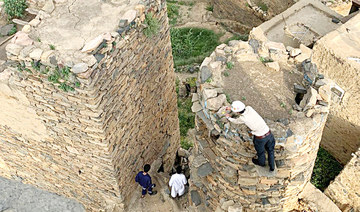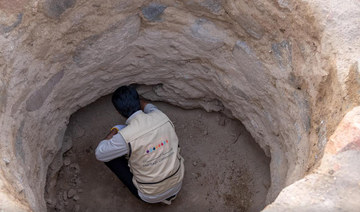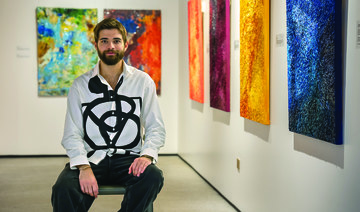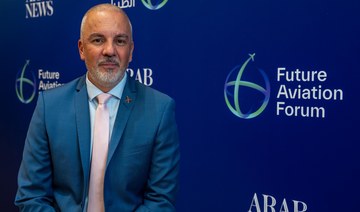ANKARA: Turkey is set to extend a state of emergency for the sixth time since it was imposed following failed 2016 coup attempt, worrying government opponents and allies who fear the special powers are thrusting Turkey toward an increasingly authoritarian direction.
The state of emergency, declared five days after the July 15, 2016 coup, has allowed a massive government crackdown aimed at suspected supporters of US-based Muslim cleric Fethullah Gulen, whom Turkey says was behind the coup attempt. Gulen denies any involvement.
The state of emergency has also paved the way for the arrest of other government opponents, including activists, journalists and politicians and the closure of media and non-governmental organizations over alleged links to extremist groups.
Most crucially, it has allowed President Recep Tayyip Erdogan to rule through decrees, often bypassing Parliament which he has long accused of slowing down his government’s ability to perform.
Among the more than 30 decrees issued since the coup, some have regulated the use of winter tires, obliged detainees accused of links to extremism to wear uniforms in court and gave full-employment rights to temporary workers. One vaguely-worded decree granting legal immunity to civilians who helped thwart the coup sparked an outcry and fears that it would encourage vigilante groups.
Kemal Kilicdaroglu, the leader of Turkey’s pro-secular main opposition party, this week accused Erdogan of taking advantage of the failed military coup to trample on democracy and lead a “civilian coup” of his own through his emergency powers.
“What have winter tires got to do with the state of emergency?” he asked.
“Through the decrees with the force of law, the government can now do whatever it pleases,” Kilicdaroglu said. “The constitution is of no importance. The government has obtained the power to carry out all unlawful arrangements.”
Turkey’s National Security Council is meeting Wednesday to recommend prolonging the state of emergency by a further three months, before the extension is due to be approved by the Council of Ministers later in the day and voted on in Parliament Thursday. Its current term expires on Jan. 19.
The government has defended its move to extend the emergency rule pointing to the severity of the coup attempt — during which rogue soldiers attacked Parliament and other state buildings leading to more than 250 deaths — and citing a continued security threat from Gulen’s network of supporters.
Erdogan has said the state of emergency will remain as long as security threats persist. Few believe that Erdogan will allow the emergency rule to end before a presidential election in 2019, when a set of constitutional amendments, narrowly approved in a referendum in April, come into effect, giving the president sweeping powers.
Observers say Erdogan is unlikely to take any step that would put a victory at the 2019 election at risk, including ending the state of emergency that has permitted authorities to ban public gatherings, which some say limited opposition parties’ ability to run effective campaigns during the referendum.
The EU, which Turkey once hoped to join, and the Council of Europe — the continent’s top human rights and democracy body — have expressed concerns over the state of emergency. The EU has called on Turkish authorities to respect the rule of law, human rights and fundamental freedoms.
The Council of Europe last year specifically criticized decrees that dismissed elected mayors and other municipal officials in Turkey’s mainly-Kurdish southeast over terror-related charges and the reappointment of unelected officials in their place.
The rights advocacy group, Freedom House, this week reduced Turkey’s status from a “Partly Free” country to “Not Free,” citing among other things, the replacement of elected mayors, and the arrests and purges of public sector workers for alleged links to Gulen. The group said the moves had left “citizens hesitant to express their views on sensitive topics.”
Under the state of emergency, Turkey has arrested around 50,000 people and purged 110,000 civil servants in a crackdown aimed at cleansing the state of Gulen’s followers.
Turkey set to extend state of emergency
Turkey set to extend state of emergency
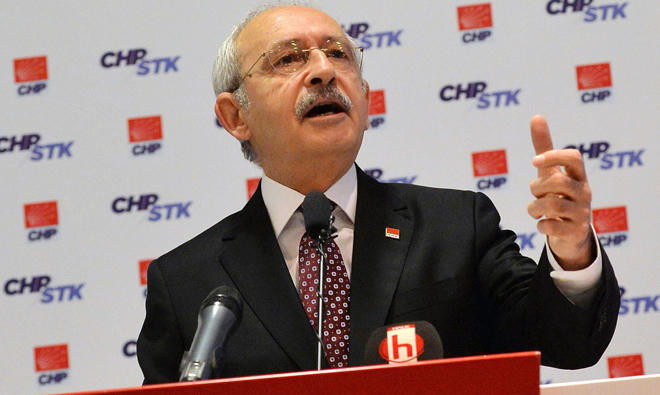
Private aviation soars in Saudi Arabia as more businesses take to the skies
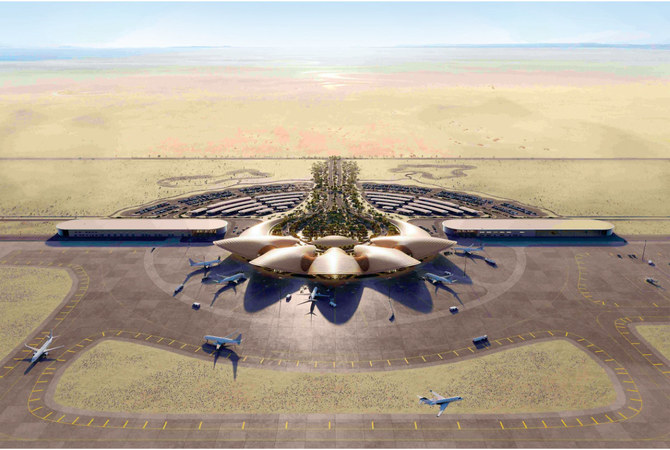
- Sector set to grow at compounded annual growth rate of 8.88 percent between 2025 and 2029
RIYADH: Saudi Arabia’s business aviation sector is experiencing a surge fueled by the Kingdom’s expanding economy, significant government investment on infrastructure, and a growing influx of high-net-worth individuals.
Valued at $1.2 billion in 2023 according to TechSCI research, this segment is projected to grow at a compounded annual growth rate of 8.88 percent between 2025 and 2029.
It was also highlighted in the General Authority of Civil Aviation’s roadmap unveiled at Riyadh’s Future Aviation Forum in May.
The roadmap aims to support the Kingdom’s development as a global high-value business and tourist destination.
Additionally, it targets a tenfold increase in the contribution to gross domestic product by the general aviation sector to $2 billion by 2030, covering the business jet segment, including charter, private, and corporate planes.
Farid Gharzeddine, captain and CEO of Dubai based private jet company SkyMark Executive, told Arab News: “Saudi Arabia’s private aviation and charter business have always been thriving, serving individuals, business executives, government officials, and special missions.”
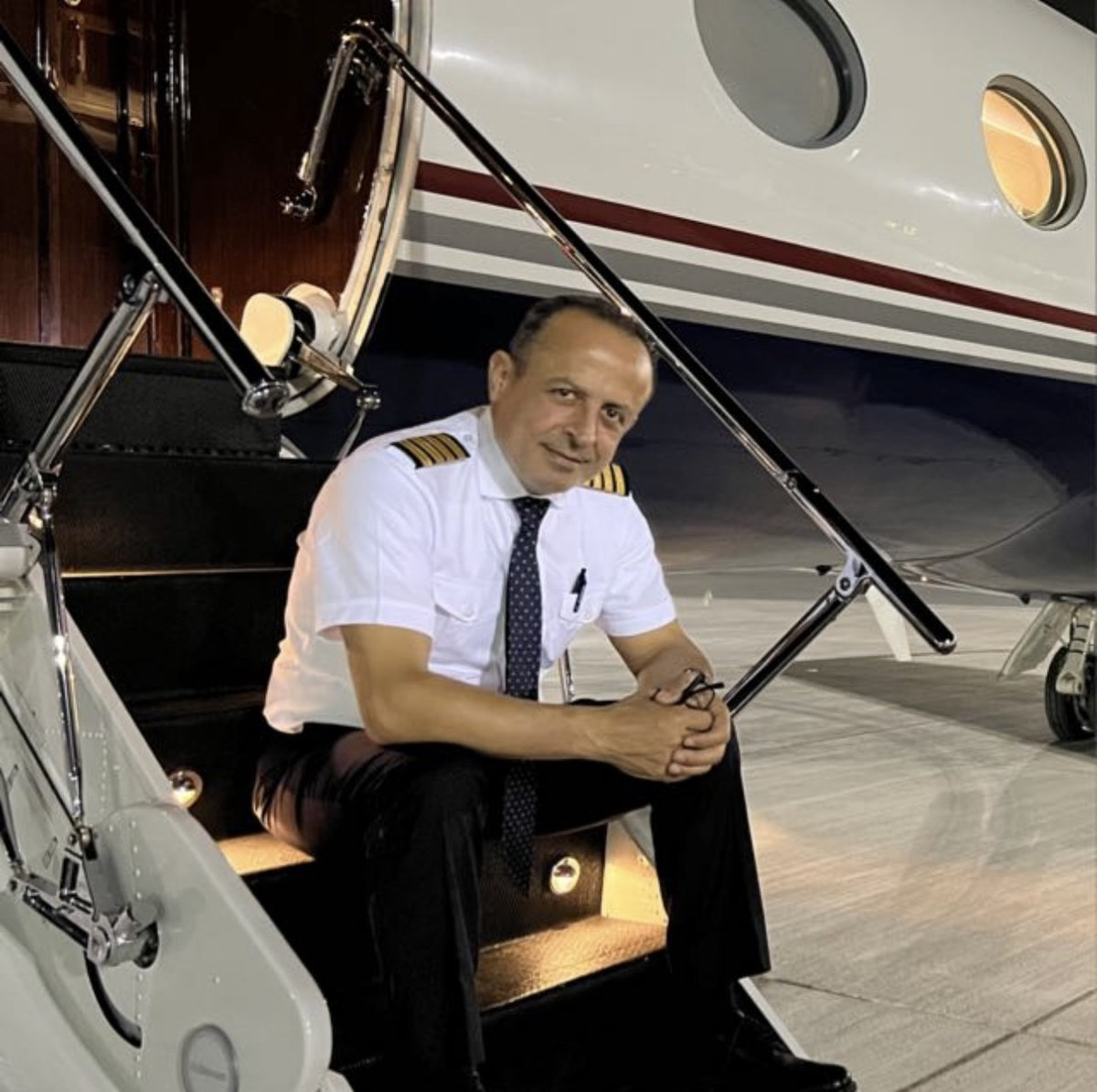
He added: “In 2023, this sector experienced significant growth driven by the Kingdom’s Vision 2030 and its efforts to diversify away from oil, particularly through the promotion of sectors such as tourism and entertainment. These initiatives had a substantial impact on the private charter industry, influencing both destinations and clientele.”
During this timeframe, he explained that SkyMark Executive, functioning as a private aircraft provider, observed a significant uptick in requests for flights transporting tourists, entertainers, and artists from abroad to emerging destinations such as AlUla, the Red Sea airport, and others.
The Red Sea International Airport, located within three hours’ flying time of 250 million people, launched its first international flights earlier this year.
With a capacity to serve 1 million guests annually, according to the group’s CEO John Pagano, this milestone marks a significant step towards establishing Saudi Arabia as a premier global tourism destination.
According to a research by Mortor intelligence, the GCC region is highly promising for business aviation, and is also a lucrative market for the private aviation sector, due to the presence of a large number of high net worth and ultra-high net worth individuals in the region.
The influx of multinational companies establishing regional headquarters in Riyadh, driven by the Kingdom's efforts to increase foreign direct investment, may have boosted demand for private aviation. This stems from the need for efficient, flexible travel options for corporate executives and high-net-worth individuals, fueling growth in private jet and charter services.
Players are investing in technological advancements to enhance aircraft manufacturing, navigation, and maintenance, anticipating growth in demand for new business jet models offering increased cabin space and long-range capabilities.
Manufacturers such as Gulfstream, Bombardier, and Embraer are focusing on luxury, technology, and performance enhancements to appeal to GCC customers, positioning themselves for growth in the forecast period.

Evidence of this is Qatar Executive’s position as the largest operator in the world for two new models from Gulfstream, G500 and G650ER.
Gharzeddine commented that his company’s clients from Saudi Arabia are often one of the most discerning clientele and prioritize state-of-the-art technological advancements when selecting aircraft for their travel needs.
“These clients prioritize excellence in service delivery, emphasizing both technological sophistication and exceptional service standards. They are committed to enhancing their travel experiences to achieve the utmost levels of comfort, safety, and luxury,” he added.
Furthermore, this segment can benefit from Saudi Arabia’s aviation strategy, which aims to expand connectivity to over 250 destinations by 2030. A key component of this plan is privatization, exemplified by the Kingdom's implementation of the first successful public-private partnership model in the Middle East.
GACA also announced during the Future Aviation Forum its targeted investments in six new specialized general aviation airports in the Kingdom, alongside other initiatives.
"These investments are anticipated to enhance infrastructure and service quality within the private aviation sector, making it more appealing to high-net-worth individuals and corporate clients," Gharzeddine commented.
"Improved facilities and services will likely drive increased demand for private jet charters and ownership, boosting the overall efficiency and capacity of the aviation sector. Additionally, these developments will help position Saudi Arabia as a key hub for private aviation in the Gulf region," he added.
Charter business and sustainability
Leading the change in sustainable aviation growth, Saudi Arabia announced its finalization of a comprehensive plan in November to address environmental sustainability within its civil aviation sector, in line with international commitments such as the 2015 Paris Agreement.
Spearheaded by GACA, the Civil Aviation Environmental Sustainability Plan targets the reduction of greenhouse gas releases, with a zero-emissions goal by 2060.
Saudi Arabia’s initiatives extend to hydrogen fuel infrastructure and green projects like the Circular Carbon Economy, while major developments such as AMAALA and the Red Sea project reflect a commitment to net-zero emissions.
Global business and government leaders consider sustainable aviation fuel a key opportunity for significant reductions in air travel emissions, with numerous initiatives underway to make this energy product a reality.
SAF is derived from renewable hydrocarbon sources and can reduce carbon emissions by 75 percent compared to traditional fossil-based jet fuel.
However, the primary challenge is supply and demand, as production needs to increase significantly to meet the set targets by 2030.
According to Gharzeddine, in addition to the limited supply, achieving economies of scale to reduce production costs is also an ongoing issue, as is the high charge of specialized processing required for biofuels.
Maryam Al-Balooshi, the UAE’s lead negotiator for aviation climate change, also emphasized the urgent need for Gulf countries to produce SAF to compete in the Western-dominated market and support greener flights, as reported by the National News in February.
An important aspect to consider is how technology and artificial intelligence can play pivotal roles in driving sustainable aviation. Advanced flight planning systems use AI to optimize flight paths, reducing fuel consumption and minimizing carbon emissions.
“By analyzing weather patterns, air traffic, and aircraft performance in real-time, AI can suggest more efficient routes and altitudes, ensuring flights operate at maximum efficiency,” Gharzeddine explained.
Predictive maintenance powered by AI also enhances sustainability by identifying potential issues before they become significant problems, thereby reducing downtime and extending the lifespan of aircraft components.
Additionally, AI-driven data analytics can help monitor and manage the carbon footprint of each flight, enabling operators to make informed decisions about fuel usage, weight management, and other factors that influence emissions.
By leveraging advanced technology, AI, and SAF, the private aviation sector in Saudi Arabia can meet growing demand while setting a benchmark for sustainability in the global aviation industry.
Ancient castles in Sabya governorate reflect architectural heritage
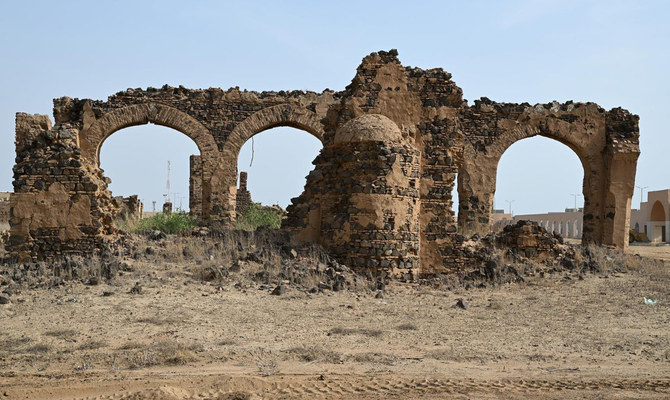
- The Sabya Archaeological Castle has origins that date to the early 20th century
RIYADH: The Sabya governorate in the Jazan region is a treasure trove of archaeological wonders, each with its own unique story.
Among these is the Sabya Archaeological Castle, whose origins date to the early 20th century. The castle, steeped in history, is a must-visit for any archeology enthusiast or researcher.
The castle is situated near Sabya Avenue, within King Fahd Park. It is part of the present city of Sabya, which offers a view of Wadi Sabya.
The Sabya Archaeological Castle, an architectural marvel, boasts spacious rooms with high ceilings and thick walls. The walls, adorned with beautiful geometric and floral patterns, are a testament to the skill of the craftsmen who built them.
Local materials such as volcanic stone, wood, and limestone were used during construction. Some accounts suggest that the clay used in making bricks was sourced from the banks of Wadi Sabya.
The use of volcanic stones of various sizes and shapes in particular gives the castle a unique and captivating beauty. The stones were obtained from volcanoes near the city, including Jabal Akwa, located a short distance northeast of Sabya.
The mosque, situated north of the castle, was also constructed using the same building materials as the castle and other structures in the area. It was intended for prayers and gatherings of religious leaders, dignitaries, and the people of Sabya. Its mihrab, or prayer niche, still stands despite some damage.
Some accounts suggest the presence of remains of other buildings in the vicinity of the castle, opening the possibility of conducting archaeological excavations to reveal more secrets about this site.
The Kingdom’s Heritage Commission is diligently working to preserve the Sabya Archaeological Castle, recognizing its significance as one of the most important archaeological sites in the Jazan region.
Artist captures Saudi charm with digital works

- Ghada Al-Shammari says art can be a means to showcase nation’s rich heritage
RIYADH: Timeless Arabic songs and heartfelt poetry provide the inspiration for Ghada Al-Shammari’s digital art, which showcases the Kingdom’s culture and society.
Al-Shammari's first artwork in 2017 was inspired by a popular Saudi song by Majed Al-Esa called “Hwages,” which means “concerns” in English.
The music video provided a comment on society by using satire, showcasing women driving cars, skateboarding, and playing basketball — activities that at the time were not easily accessible for women.
“I liked how they portrayed women in the traditional Saudi abaya, which motivated me to draw it,” Al-Shammari told Arab News.
For one of her artworks Al-Shammari was inspired by a poem by literary icon Prince Badr bin Abdul Mohsen and popularly performed by the late Saudi singer Talal Maddah.
The drawing depicts a man glancing at a woman who has her eyes downcast, with an oud instrument between them, and the 1980 song title “Forgive Me” written in Arabic text above the illustration.
The Saudi artist said that she tries to capture the poet’s feelings with her artwork, adding: “Romantic songs with descriptions of the poet’s beloved have been particularly inspiring for me.”

Al-Shammari draws inspiration from the beauty within the Kingdom’s culture. Many of her artworks depict women wearing traditional Najdi-style dresses and gowns with draping silhouettes and glimmering gold headpieces and turbans.
The men are depicted with striking features and wearing traditional garments like the head coverings called ghutra or shemagh, and bisht, the men’s cloak commonly worn in Saudi Arabia and other Gulf countries.
“Saudi culture and traditions have significantly impacted my work. Growing up, I used to think of Saudi Arabia as just what was around me in terms of environment, customs, and traditions,” Al-Shammari said.
When she moved from her hometown of Hafar Al-Batin to the capital Riyadh, Al-Shammari said her friendships and acquaintances showed her a new world of ideas that elevated her artistic vision.

She added: “They shared stories about their region, important landmarks, and fascinating tales that were unique to their areas. This motivated me to learn more about my country and enjoy drawing the diversity and differences I discovered in my artworks.
“Saudi Arabia is full of exciting things, and its diversity is what fascinates me the most. Each region has its own heritage, traditions, architecture, and unique dialect, which makes me eager to learn more and create works that reflect this beautiful diversity.”
Al-Shammari said she selects particular color combinations to evoke the emotions she aims to convey, opting for brighter colors for her cheerful and vibrant works.

Al-Shammari graduated from the College of Arts and Design at Princess Nourah bint Abdulrahman University with a bachelor’s degree in fine arts.
She added: “Through this specialization, I discovered many artistic and historical aspects, learned about various artists, and got to understand their ideas and philosophies, which transformed my perspective of my work.”
Her love of art began as a child when she would draw characters from her favorite anime and cartoons.
“I started focusing on drawing from an educational perspective at the age of 12 through YouTube tutorials on drawing anime and cartoons, which sparked my artistic journey,” Al-Shammari said.
She added that art is important as it showcases the cultural aspect of a country and its heritage, conveying its history and traditions that help define life in the past and present.
She said: “It serves as a way to preserve and transmit this heritage from one generation to the next, seeking to document knowledge and memories.
“Additionally, from an economic standpoint, art is considered a means to attract tourists interested in discovering the country and its civilization.”
For more information on the artist, visit her Instagram @gh.oi.
Peshawar residents, led by PTI lawmaker, storm grid station to restore power amid heatwave
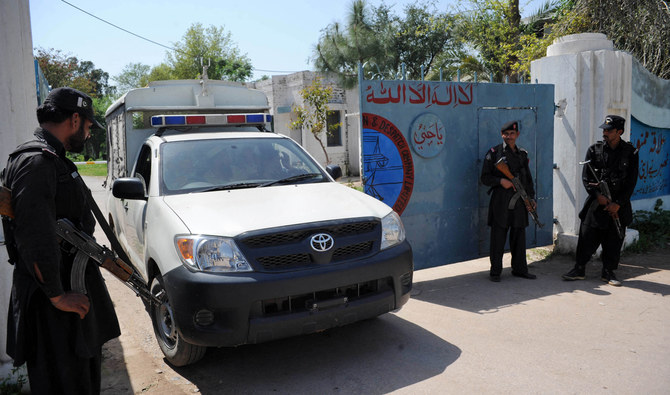
- The electric supply company says the protesters ‘forcibly switched on nine high-loss feeders’ in the area
- It mentions losses due to power-theft, non-payment of dues, lodges police complaint against the lawmaker
ISLAMABAD: Residents of Peshawar in Pakistan’s northwest, led by a provincial lawmaker from former Prime Minister Imran Khan’s Pakistan Tehreek-e-Insaf (PTI) party, stormed a grid station on Saturday and restored electricity themselves to protest prolonged power cuts amid scorching heat.
Power outages are not uncommon in Pakistan during the summer months when the demand on the national grid spikes sharply due to the widespread use of air conditioners and desert coolers. These seasonal surges often lead to prolonged power outages, which fuel public discontent, particularly during the intense heatwaves that have swept across Pakistan in recent years.
While the blackouts can sometimes be part of the official load management strategy, Pakistani authorities have also pointed to power theft in Khyber Pakhtunkhwa as a significant issue, occasionally leading to complete shutdowns of electricity.
“If our electricity is cut off, everyone’s electricity will be cut off,” Pakistan’s Geo TV quoted the PTI lawmaker Fazal Elahi as saying after the incident.
The Peshawar Electric Supply Company (PESCO) said Elahi and other protesters entered the grid station and “forcibly switched on nine high-loss feeders” in the area.
“Losses due to power theft and non-payment of dues on these feeders are more than 80 percent,” it added.
Local media also reported that PESCO had filed a police complaint against the PTI lawmaker, who said protesters were only demanding their rights.
From tennis to paper, PIF pushes ahead with its diverse investments strategy in 2024
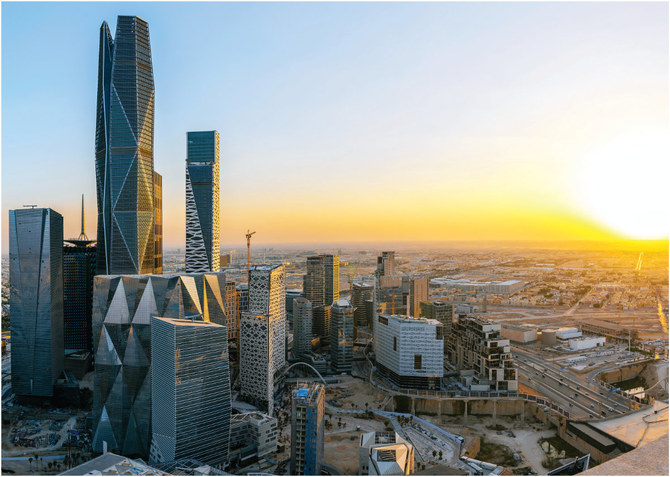
- Sovereign wealth fund continues to drive forward Kingdom’s economic diversification agenda
RIYADH: Tennis, tech and paper production are just some of the areas Saudi Arabia’s Public Investment Fund has reached into so far in 2024, as the body continues to drive forward the Kingdom’s economic diversification agenda.
The sovereign wealth fund has continued with the momentum built up in 2023, which saw it make investments in companies as diverse as London’s Heathrow Airport and Rocco Forte Hotels.
Its activities since the turn of the year saw PIF revise its asset size on its website, reaching $925.2 billion after it climbed to the fifth spot in a ranking of state-owned investment organizations by the Sovereign Wealth Fund Institute.
This monumental rise in the fund’s standing followed its procurement of an additional 8 percent stake in Aramco, boosting its shareholding’s estimated value to $328 billion.
Here are some of the key announcements made by the wealth fund so far in 2024
PIF’s deal with Bahrain Mumtalakat to enhance investments
One of the primary deals signed by PIF in the first quarter was a memorandum of understanding inked with Bahrain’s sovereign wealth fund Mumtalakat in March.
The agreement aims to expand cooperation between the two parties, enable new and promising investment prospects in Bahrain, and create opportunities for private companies in both countries.
Yazeed Al-Humied, deputy governor and head of MENA Investments at PIF, said the deal supports the wealth fund’s objectives of building long-term strategic regional partnerships that bring additional value to local economies.
“It also enables the achievement of sustainable returns that further contribute to maximizing PIF’s assets and diversifying the economy in line with the objectives of Saudi Vision 2030,”
said Al-Humeid.
PIF acquired 40 percent stake in Zamil Offshore
In February, the wealth fund acquired a 40 percent stake in Zamil Offshore Co., a significant move that could boost marine support services in Saudi Arabia.
In a press statement, PIF revealed that this investment is part of the fund’s broader strategy to contribute to the development of the Kingdom’s energy base.
Zamil Offshore Co. is one of the largest Saudi-based offshore support providers, operating over 90 vessels in the Arabian Gulf.
Bakr Al-Muhanna, head of the Transport and Logistics Sector in Middle East and North Africa Investments at PIF, said that this investment will strengthen the offshore support industry, contributing to the fund’s wider efforts to develop Saudi Arabia’s energy ecosystem.
PIF’s efforts to accelerate growth of global tennis sports
In February, the wealth fund signed a multi-year strategic agreement with the Association of Tennis Professionals aimed at accelerating the growth of the sport globally.
“Through our collaboration with ATP, PIF will be a catalyst for the growth of the global tennis landscape, developing talent, fostering inclusivity and driving sustainable innovation. This strategic partnership aligns with our broader vision to enhance quality of life and drive transformation in sport both within Saudi and across the world,” said Mohamed Al-Sayyad, head of corporate brand at PIF.
Under the deal, PIF will leverage ATP’s expertise to develop further opportunities for young Saudis in wtennis, including the development of state-of-the-art facilities and ensuring the availability of necessary coaching in the Kingdom.

The launch of Alat
Another significant development in February was the launch of Alat, a PIF firm aimed at turning Saudi Arabia into a global hub for sustainable technology manufacturing.
The company will prioritize constructing products tailored for local and international markets across seven strategic business units. These include advanced industries and semiconductors, smart appliances and health solutions, as well as smart devices and building technologies.
Alat will also manufacture more than 30 product categories that will serve vital sectors, including robotic and communication systems, advanced computers and digital entertainment, as well as advanced heavy machinery used in construction, building and mining.
Acquisition of Mepco in diversification push
In January, PIF bought a 23.08 percent stake in the Middle East Paper Co. as the fund continued expanding its investments in the Saudi economy’s primary sectors.
According to a statement, the body acquired the stakes by increasing capital and subscribing to new shares in Mepco. Muhammad Aldawood, PIF’s head of the industrials and mining sector in the Middle East and North Africa region, said the fund’s investment in Mepco reflects the attractive growth opportunities in promising sectors such as recycling, retail, and building materials.
The fund added that PIF’s investment in Mepco will support the private sector in Saudi Arabia, boost local content, increase exports as well as improve quality and competitiveness.
Sami Al-Safran, CEO of MEPCO, said that PIF’s investment will help the company become a national champion in the recycling industry.
“PIF’s investment further enables the implementation of our expansion strategy and captures significant growth potential, both locally and regionally,” said Al-Safran.
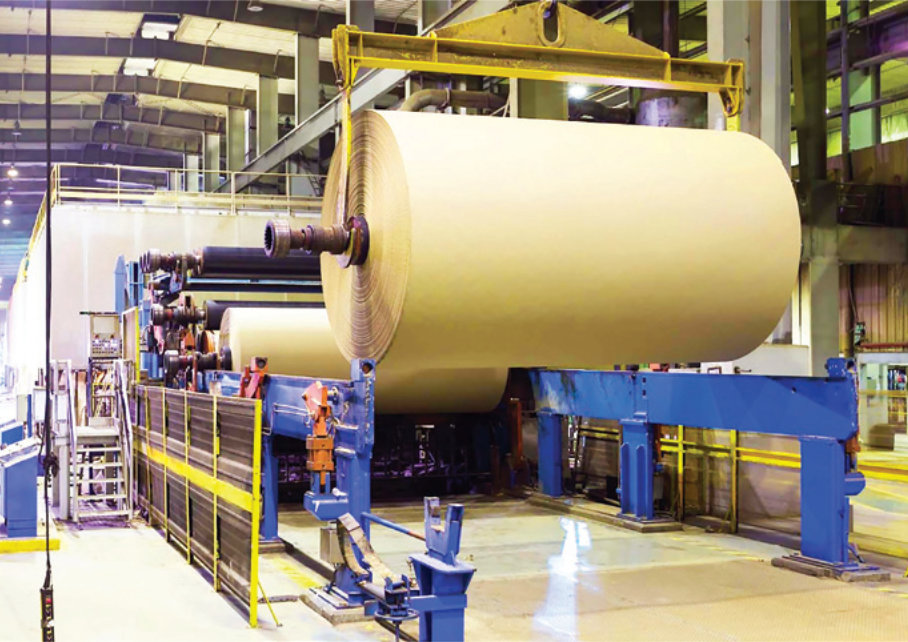
Completion of the acquisition of Dubai-based Kent
In February, Saudi contractor Nesma & Partners, backed by PIF, completed the acquisition of Kent, based in Dubai, after signing an agreement in 2023.
In a statement, Nesma said that the acquisition aligns with the company’s strategic growth strategy and aims to position the firm as a global leader in the construction industry.
“The acquisition of Kent represents a significant milestone for Nesma & Partners, reinforcing our commitment to expanding our capabilities and enhancing our position in the global market,” said Samer Abdul Samad, president and CEO of Nesma & Partners.
According to the acquisition details, Kent and Nesma do not plan to integrate operations, and both firms will continue their existing projects.
PIF aims to strengthen electric motorsports sector
In January, the wealth fund signed a multi-year agreement named Electric 360 with Formula E, Extreme E and E1 to support the growth of electric motorsports and their role in advancing the future of electric mobility.
In a press statement, PIF said the partnership will drive technological innovation and revolutionize sustainable transport and future mobility, ultimately reducing carbon emissions.
“Together with these championship series, Electric 360 will redefine electric sport and supercharge its growth, delivering tangible impact aligned with our broader business strategy as PIF drives new green technological innovation that will be the cornerstone of future electric mobility,” said Mohamed Al-Sayyad, head of corporate brand at PIF.


